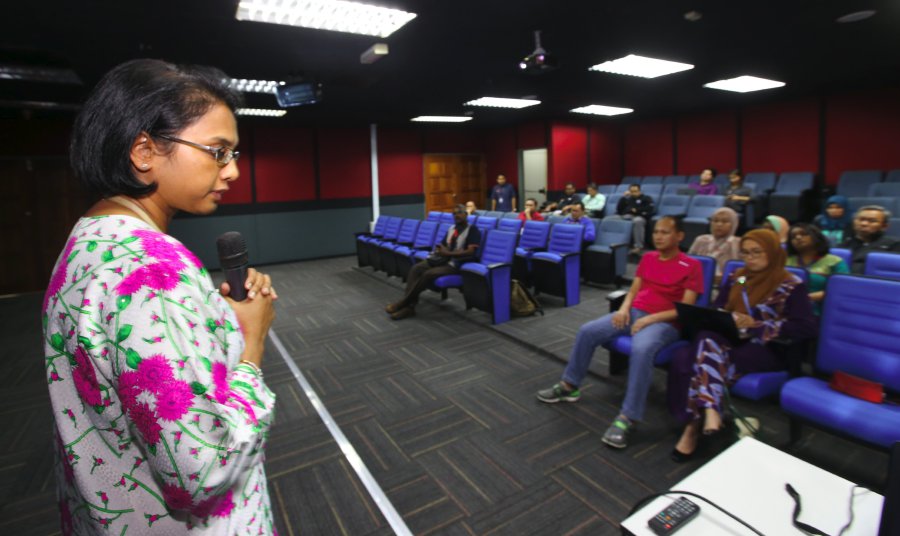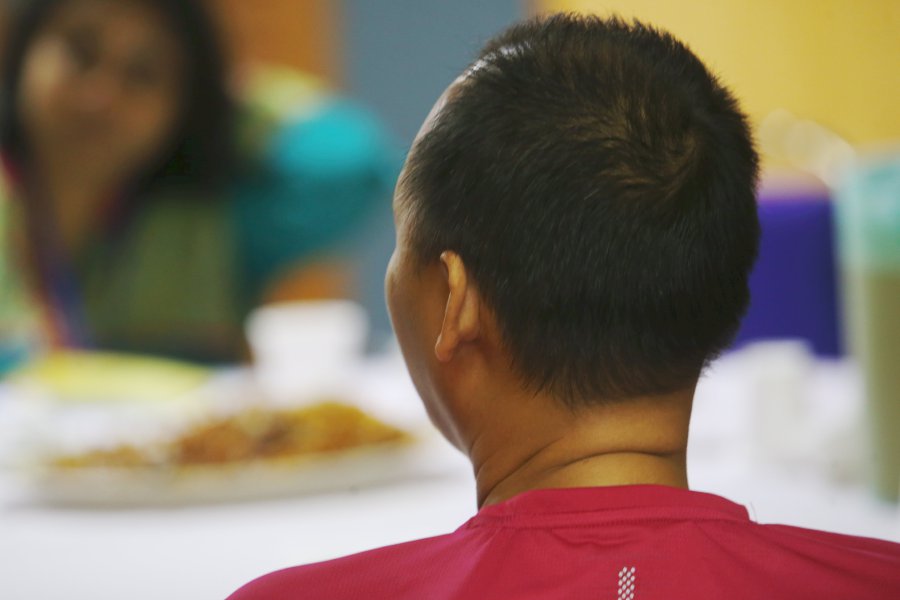4 to 6 Malaysians diagnosed with MND each month

PETALING JAYA: About four to six Malaysians are diagnosed with Motor Neuron Disease (MND) every month, of which men more susceptible compared to women.
MND, also known as amyotrophic lateral sclerosis (ALS), is a rare condition which affects the nervous system in the body.
It leads to muscle weakness where the nerve cells in the brain and spinal cord stop working.
There is no cure for this disease.
Based on worldwide studies, one to two people per 100,000 each year are diagnosed with MND and in Malaysia there are about 600 new cases of MND.
Two consultant neurologists from University Malaya Medical Centre (UMMC), Professor Dr Nortina Shahrizaila and Professor Dr Lydia Abdul Latif gave a talk on MND at Sri Pentas.
Organised by Media Prima Bhd, the talk were held to create awareness and spread knowledge on MND among Malaysians.
Dr Nortina said MND affected important muscle activities such as gripping, walking, swallowing, speaking and breathing.
She said the average life span of anyone with MND is two to five years and as the condition progresses patients with the disease will find some of these activities becoming increasingly difficult.
“MND or ALS is not a disease which attacks the old because we have patients who are in their late 20s, early 30s with this disease. Motor Neuron Disease affects your nerves – like an electrical circuit from the brain which tells your muscles to move.
“So as time goes by and if something triggers the nerves to start dying off then it will affect any form of muscles. Although we do not have concrete statistics to prove men who involved in sports suffer this disease, but most of the patients diagnosed with MND are athletes.
“The most common part affected is your arm. For instance we had a patient (who had passed away), during his time as a police officer he realised he could not grip his gun and that was how the MND started.
“By the time he came to see us, his condition had begun to deteriorate and had spread from his hand and progressively to his other parts of the body, affecting his walking, swallowing, speech and breathing in just three to five years.
“This is the condition the late Moktar Dahari had, and he passed away at age of 39 in 1991 after three years of battling MND,” she said, adding that most patients complain about cramps or their muscles had started to twitch.
She said men were more susceptible to MND compared to women, and about 10 percent of cases were related to family history but MND could happen to anyone.
“We are still not clear as to how or what is causing the motor neurons to stop working. No specific test has been conducted to diagnose MND and the diagnosis is usually handled by an experienced neurologist who will carry out special tests to rule out the conditions,” she said.
She said UMMC is the first centre to initiate and set up a rehabilitation centre for patients with MND.
She said the hospital is equipped with the state-of-the-art facilities including expertise, physiotherapists, speech and language therapists and psychologists.
Dr Nortina said with the global statistics and the population in Malaysia, it is estimated there are probably about 2,000 Malaysians are with MND.
“So far, in UMMC we are only seeing 60 patients. Though we have the facility, time and space to look after MND patients yet there are some who are unaware that such services are available.
“We need more resources, volunteers, nurses who can help us to coordinate. In this way we may able to keep track of the patients in the country. One day we want to be recognised as an MND centre,” she said, adding that in the UK there were neurology hospitals that have been set up specifically to treat MND patients.

A patient who wished to be identified as Roi, 42, said he was first diagnosed with MND in August 2013.
“Before I was officially confirmed with MND, my right hand began to lose control in gripping. I could not grip my hand phone when I was at work at that time. I decided to see a doctor. After running several tests, the doctor diagnosed MND.
“However, by the time I went for other alternatives it had already affected my left hand. So I decided to seek Dr Nortina and Dr Lydia for their advice on how to slow the progress of the disease,” said Roi who has two children.
Roi who is currently works an IT Support said he has bought a device which called glassouse assistive device, which enables him to work.
He said he tries not to think about how it will end and wants to continue living his life as best as he possibly can.
This article was originally published on the News Straits Times.



